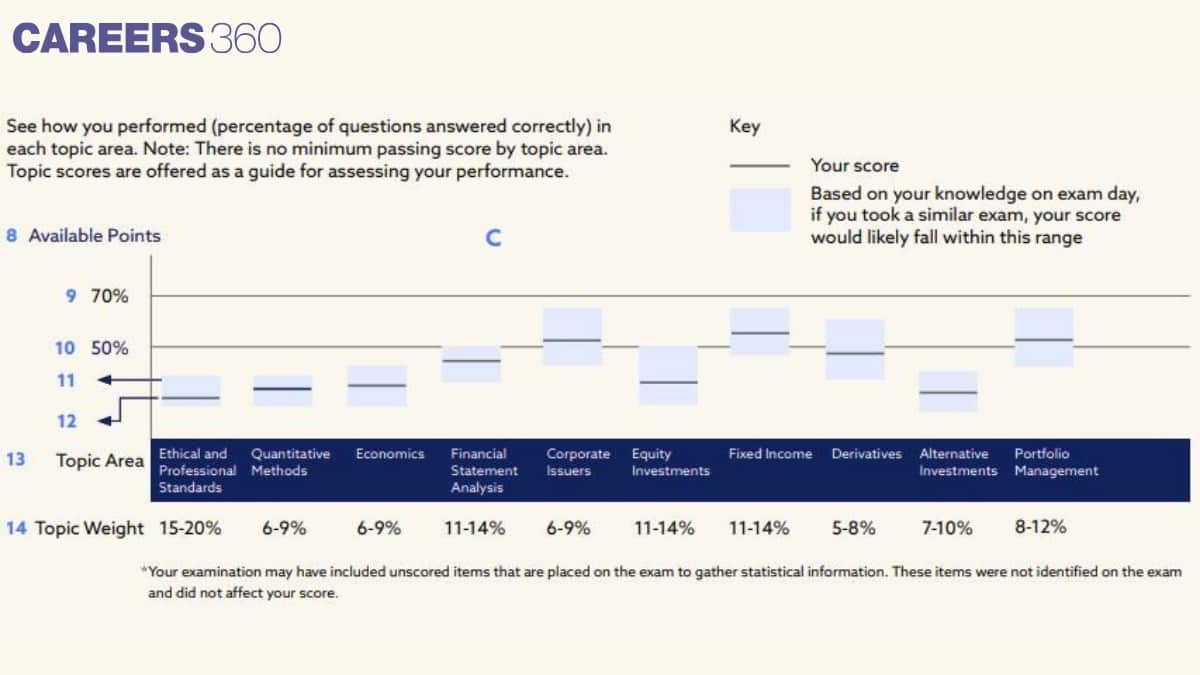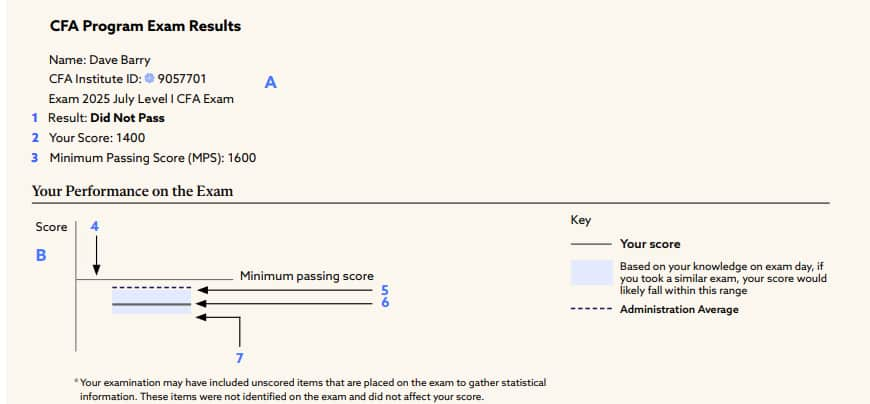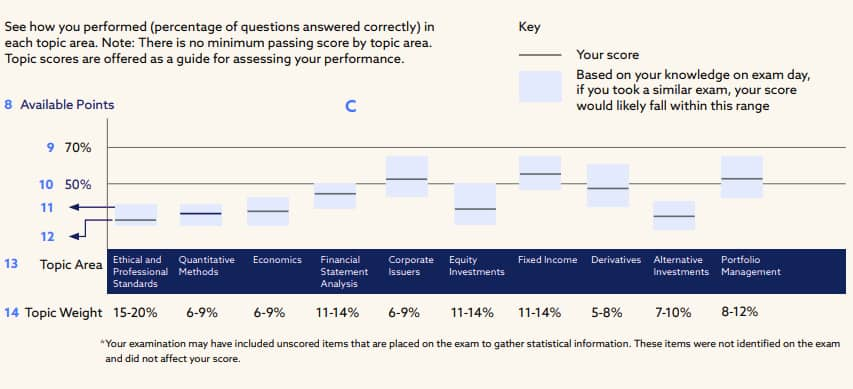Understanding your CFA results: MPS, Confidence Interval, Topic-wise Performance
The Chartered Financial Institute is now adding transparency to candidates' score reports, which will help them get a clear picture of the results. These scale scores are a numerical representation of how the candidate did on the CFA exam. Using this, aspirants will be able to compare how well they performed against the Minimum Passing Score (MPS).

Various metrics, such as the minimum passing score, confidence interval, and topic-wise performance, provide valuable insights into how students have performed and where one can improve. Read the entire article to get a detailed understanding of CFA scoring metrics.

What is the CFA Minimum Passing Score?
The Minimum Passing Score (MPS) refers to the score required to pass the exam. Candidates who score below the MPS will not pass, while those who achieve MPS or above will pass. The purpose of setting the MPS is to ensure fairness to all candidates, as the difficulty level of the exam is also taken into consideration when setting the MPS. The table below outlines the MPS for each level of the CFA program:
If a candidate's score lies above the MPS line, they passed
If a candidate's score lies below the MPS line, they have failed
The minimum score on the exam needed to pass is that the aspirant's score matches or is equal to or greater than the prescribed number to “pass.” Candidates whose scores are lower than the MPS are considered to have failed. The MPS for each level are given in the table below:
Score and Confidence Interval Above MPS
A candidate who scores very well could have high confidence that they would have passed under nearly any circumstance.
Score and Confidence Interval Below MPS
A candidate who scores very poorly can have high confidence that they would not have passed under nearly any circumstance and would need to study much more to pass in the future
Score Below the MPS but Confidence Interval Overlaps the MPS
A candidate who scored close to the MPS might have passed under some sets of circumstances but, in most cases, would not have passed. With a little more studying, this candidate can push the odds in their favour.
CFA Level-Wise Minimum Passing Score
Programme Level | MPS |
CFA Level 1 | 1600 |
CFA Level 2 | 2600 |
CFA Level 3 | 3600 |

CFA Confidence Interval
The CFA exam confidence interval shows how a candidate's score could be impacted by various factors, like a good or bad test day. The light blue shading around the candidate’s score represents a 90% confidence interval. The top end reflects the score the candidate might achieve if the exam goes well, while the bottom end indicates what you could score if your weakest areas were tested or you had a tough day.
CFA Topic-Wise Performance
While there is no separate minimum passing score for each topic area. A strong performance in one topic can balance out a weaker performance in another. Aspirants' score on each topic indicates how well they did in each of these areas. Candidates planning to take another (or the same) level of the CFA exam in the future must know how their scores are measured for various topics. A good understanding of the topic-wise CFA score can guide students’ exam preparation for the future.

Candidates are advised to aim for advanced proficiency in most topics and score 70% or more on practice exams. The topic-level information reveals the relative strengths and weaknesses of the students for each topic area.
Popular Courses and Specializations
Applications for Admissions are open.
Among top 100 Universities Globally in the Times Higher Education (THE) Interdisciplinary Science Rankings 2026
University of Southampton Delhi Masters Admissions 2026
ApplyMSc Finance and MSc International Management Admissions 2026 Now Open | Ranked Among the Top 100 Universities in the World by QS World University Rankings 2025 | Early Round 2 Applications Deadline: 29th Jan’26
IIC Lakshya CPA Course
ApplyAchieve gold standard in accounting & get recognized globally
Somaiya Vidyavihar University B.Com Admissions 2026
ApplyHighest CTC 58 LPA | Avg CTC 11.35 LPA| 150+ Recruiters
IIC Lakshya CMA Course
ApplyBe a part of the largest Cost & Management Accounting Body
IIC Lakshya CA Course
ApplyEmbrace the Esteemed Power of the Ultimate Signature
